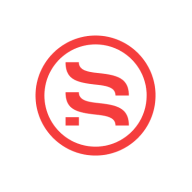

SUSE Linux Enterprise and Series are key players in the enterprise operating system space. SUSE seems to have the upper hand in system stability and support, while Series offers superiority in advanced functionalities and automation.
Features: SUSE Linux Enterprise is designed for those who prioritize robust security, seamless system updates, and strong enterprise support. Series provides advanced automation, intuitive configuration tools, and regular feature innovations, drawing tech-savvy enterprises towards cutting-edge technology.
Ease of Deployment and Customer Service: SUSE Linux Enterprise offers a traditional deployment model, rich manuals, and responsive customer support. Series provides a contemporary deployment approach, quick integration tools, and proactive customer service, facilitating a swifter onboarding experience with reactive problem resolution.
Pricing and ROI: SUSE Linux Enterprise is generally more budget-friendly initially, making it appealing for budget-conscious businesses, with its ROI primarily driven by reliability. Series, though costlier upfront, offers innovative features that justify its price through long-term ROI and reduced operational excess.

Series is widely used for project management, task tracking, and team collaboration, known for its intuitive design and efficient workflows.
Series enables efficient communication, task prioritization, and progress monitoring, making it effective for organizing projects and meeting deadlines. The platform also enhances transparency and accountability among team members, boosting productivity and simplifying task delegation. Integration with other tools and scalability to accommodate different business sizes further enhance its appeal.
What are Series' key features?
What benefits should be considered?
In industries like technology, Series is implemented for robust project management, ensuring deadlines are met and enhancing team collaboration. In marketing, it aids in streamlining campaign tracking and performance analytics. Health care teams use it for task delegation and maintaining accountability, ensuring patient care tasks are efficiently managed.
SUSE Linux Enterprise offers features like YaST for server management, seamless integration with Oracle and SAP, and a robust security setup. Renowned for stability, it efficiently supports workstations, SAP workloads, and cloud migrations across diverse industries.
SUSE Linux Enterprise is known for its lightweight design, high performance, and ease of installation. Its flexible architecture supports extensive documentation and efficient patching. The system uses the BTRFS file system for effective virtualization, and community support is significant. However, challenges include package updates causing conflicts, difficult initial setup and software management, high pricing, and support response times. Improvements in security compliance, cloud integration, hardware compatibility, and documentation are also needed.
What are SUSE Linux Enterprise's important features?Industries like healthcare and banking use SUSE Linux Enterprise for secure transactions and structured application deployment. It is also a choice for organizations involved in testing, automation, and web development, offering support for SAP HANA integration and facilitating cloud migrations.
We monitor all Operating Systems (OS) for Business reviews to prevent fraudulent reviews and keep review quality high. We do not post reviews by company employees or direct competitors. We validate each review for authenticity via cross-reference with LinkedIn, and personal follow-up with the reviewer when necessary.